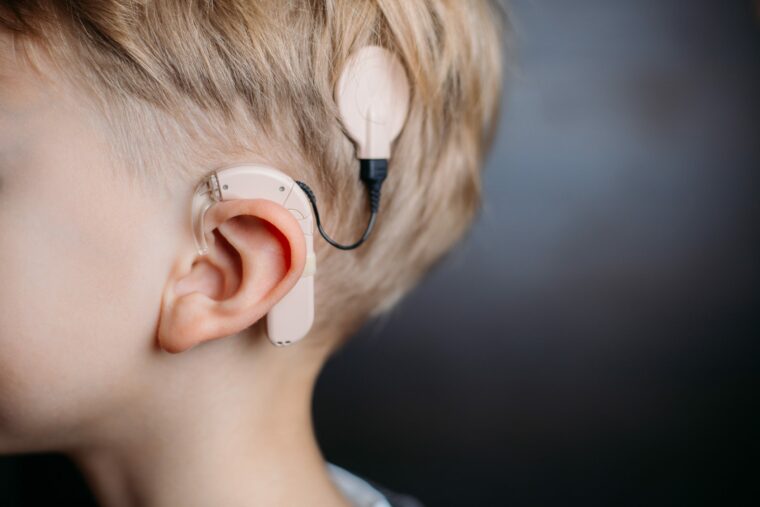Call us on 0800 310 1230 - or complete the form below:
Cochlear Implants – Three Misunderstandings

According to the British Cochlear Implant group, in 2017, over 12,000 people in the United Kingdom had cochlear implants. Public awareness of cochlear implants has grown with the popularity of YouTube videos showing wearers hearing sounds for the first time. Most laypersons think a cochlear implant allows a deaf person to hear again. However, the truth is not that simple. Read on to correct some common misunderstandings about cochlear implants.
Sounds are the Same
When a cochlear implant gets switched on, the sound produced for the listener is quite different than what hearing people hear. That’s because the implant only provides a representation of sound. Cochlear implants work by stimulating the auditory nerve. The stimulation sends a signal to the brain that gets interpreted as sound. As such, disappointment can follow the first time a person hears through their cochlear implant. Fortunately, wearers report that the longer they wear their implant, the more distinct sounds become. This is because the brain needs time to rewire itself to “hear” via the implant. Speech-language and audio-verbal therapy can greatly help with this process.
They Work for All Types of Hearing Loss
Cochlear implants are most often used for people with severe to profound hearing loss, for whom hearing aids have not provided sufficient help. According to the Mayo Clinic, adults with little or no experience with sound are less likely to benefit from cochlear implants. People who have had a relatively short period of hearing loss before receiving the implant tend to get better results. The procedure is especially helpful for babies, as they are just beginning to acquire language.
Hearing is Completely Restored
A person with a cochlear implant will not suddenly be able to hear everything. The implant provides improvements in hearing, not total restoration. Common enhancements include the ability to hear speech, pinpoint the source of a sound, detect sounds in the environment, better hear on the phone, distinguish songs from one another, and perceive loud, medium, and soft sounds.
Although cochlear implants do not entirely solve the problem of hearing loss, they are nonetheless an amazing medical breakthrough. As the only medical device capable of replacing a sense, cochlear implants are improving the quality of life for hundreds of thousands of people around the world.
Read more news
Free Hearing Assessment
Complete the form and our nearest Audiologist will contact you to arrange your Free Hearing Test & Assessment:
- Free Consultation Local to You
- Audiologist will call you directly
- No-Obligation Friendly Service

 Local Audiologists Near You
Local Audiologists Near You Free Hearing Tests & Assessments
Free Hearing Tests & Assessments Small & Invisible Hearing Aids
Small & Invisible Hearing Aids Hi-Tech, Rechargeable & iPhone Ready
Hi-Tech, Rechargeable & iPhone Ready